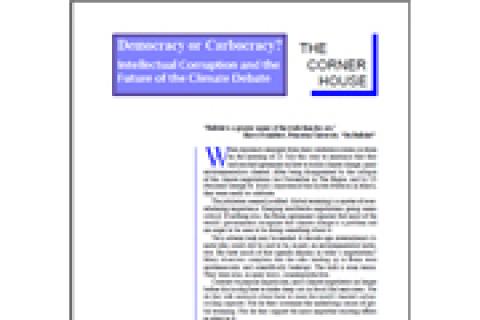Newly installed forestry minister M. Prakosa and trade and industry minister Rini M.S. Suwandi announced a moratorium on the export of logs and wood chips in October in order to "safeguard the conservation of Indonesian forests."
Other information
More than 80 percent of timber from the Amazon is logged illegally, and mahogany --also known as the “green gold”-- has been the main target of such operations. Mahogany's value --a cubic meter can fetch more than US $1,600 per cubic meter-- has attracted loggers who encroach deep into pristine forests to supply a demand almost exclusively aimed at export markets.
Although the President has changed in Perú, the forest degradation process and the indigenous peoples' situation remains the same or even worse. As was denounced several times in previous issues of this bulletin (1, 8, 34 and 35), the Peruvian Amazon forest is being degraded by activities such as oil prospection and extraction and logging by powerful Malaysian companies. Illegal logging also adds a new menace to the material and cultural survival of the indigenous groups that live in the forest.
Chinese logging companies are relatively new arrivals in South America. In Suriname, at least two have been operating since 1996; in neighbouring Guyana, the first arrivals surfaced in the year 2000. In both cases, the companies are operating on or near Indigenous and Tribal lands. Reports have also surfaced of Chinese companies operating in northern Brazil.
It is well known that the World Bank has been a major force in the destruction of the rainforests of the world by financing destructive projects. The decison taken yesterday of approving a controversial forestry project seems to show that the Bank is still far from truly embracing participatory forest conservation and management.
The International Tropical Timber Organization has dedicated an entire issue of its Newsletter (Vol. 11 No 3, 2001) to tree plantations. Unfortunately, the ITTO has chosen to publicize their allegedly positive impacts, while basically ignoring the numerous struggles against them resulting from the broad range of negative social and environmental impacts they entail.
The 7th Conference of the Parties of the Convention on Climate Change was held in Morocco from October 29 to November 9, 2001. On October 31, forest activists from the Global Forest Coalition and announced in a side event three nominations for the "Treetanic Award".
The "Treetanic Award" is handed over during the climate negotiations to the companies implementing the worst carbon sink projects, such as the monoculture tree plantations which are currently being implemented to avoid reduction of CO2 emissions.
Representatives of the Indigenous Peoples present at the 7th Conference of the Parties (COP) of the United Nations Framework Convention on Climate Change (UNFCCC), held in Morocco in November this year, issued a declaration demanding recognition of their rights and warning on the danger of the so-called “carbon sinks.” The following paragraphs are part of this declaration, available in Spanish on our web page (http://www.wrm.org.uy/actores/CCC/IPMarrakesh.html).
by Larry Lohmann, Corner House Briefing 24
Mangroves are the coastal equivalent of tropical forests on land. There are various types of mangroves: coastal mangroves, growing without the input of fresh water from inland and that can extend for various kilometres, mangroves growing mainly at the mouths of rivers or deltas, that may be very extensive, and coral reef mangroves that grow on coral reefs above sea level. But they all have something in common, they are very special, fragile and endangered “salt water forests”.
At present, mangrove forests cover an area of 181,000 km2, distributed in over 100 countries, but during the past 50 years, over 50% have been lost. Some direct activities are destroying mangroves or are degrading them, including substitution by other activities such as shrimp farming and agriculture, forestry, salt extraction, urban development, tourist development and infrastructure. Furthermore, other impacts include deviation of river water and contamination, caused by heavy metals, oil spills, pesticides and other products.
Most people that eat shrimp are unaware of where it comes from and about the impacts its production implies. Most of the commercial shrimp is either caught wild using destructive fishing methods, or produced in industrial shrimp ponds, which constitute the main cause of mangrove destruction.

